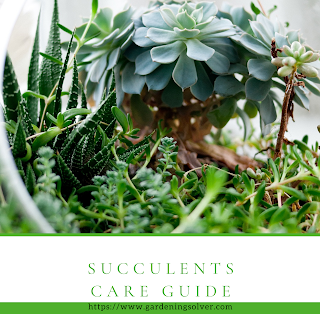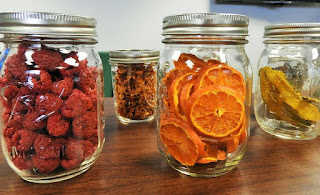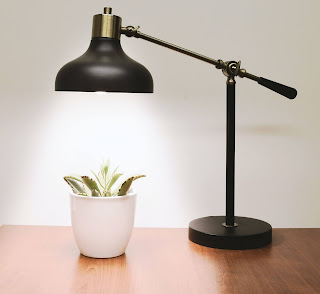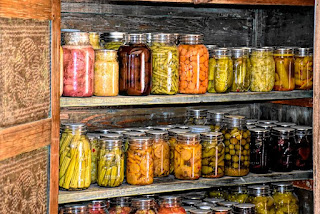How to Care For Succulents
It's so exciting to watch your succulents growing and looking beautiful. However, it can also be exhausting to care for them, especially if it's your first time to grow succulents. Sometimes even if you have experience, you may be unsure how to best care for them.
Well, to stay healthy, succulents do need some special care. So in this post, I've compiled some of the things required for your succulents to thrive. If you felt like you have reached the lowest point and struggled to find a way to care for your succulents, this guide would be of great help.
If you are in a hurry to read the entire article, grab the ultimate guide to growing happy succulents at this link.
This post contains affiliate links. Whenever you buy something through one of these, we get a small commission without any extra cost to you. Thank you !
Know Your Succulents Varieties
First of all, you need to learn your succulent's classification. Since succulents differ, finding out what's ideal for the one you own will make it easier for you to care for it. Some varieties are suited for outdoor growing, while others thrive well indoors. Also, certain succulents require specific environments in order to thrive. Therefore if possible, try to buy native varieties to avoid increasing your stress levels while nurturing your plants.
Water Sparingly
The number one reason succulents die-off is overwatering. Most succulents species, especially those that don't produce flowers and varieties with leathery or waxy leaves, can't tolerate soil that is always wet. They just need a surprising amount of water to soak their roots. Too much water may damage roots and disturb plant growth.
To maintain a proper balance of water for your succulents, let the soil dry between waterings. You can determine soil wetness by sticking your finger into the soil to feel if the soil is damp. If it is moist, then you don't need to water your succies. But when the soil feels dry, you need to water them.
When watering, I prefer to use a spray bottle as it accurately adds enough water without soil being muddy. Using a spray bottle allows moisture to soak deeply into the soil and reach the root zone without standing on the surface. Standing water can kill your succulents.
Use the Best Pot
Most people think that pots don't have much to do with succulents as long there's good soil and drainage. However, if you want the best out of your succulents, considering drainage alone isn't an option. You must also look at the design, material, and size of the pot. It should be sturdy wide enough to accommodate the height of the plants and how the roots spread.
When it comes to the material, ceramic and terracotta pots are the ones that are recommended. These materials absorb water, and they're breathable, which encourages air circulation and proper water drainage. So if you want to keep your succulents happy, try to avoid materials like metal, plastic, and glass containers.
Ensure They Get Adequate Light
One of the primary concerns for succulents is making sure they get adequate light. Most succulents can tolerate full sun, but some can't stand for direct afternoon sun. To make it easier for you, put them all under filtered sunlight where the sun will reach your succulents through barriers like glass windows, trees, and so forth.
But if you live in areas where your succulents can't access sunlight, alternate with reliable grow lights. Grow lights are also ideal for succies that require high light levels. But you don't need to turn the lights on all the time. As a rule of thumb, 10 - 12 hours is enough.
Always Inspect the Leaves For Bugs and Damage
Bugs can be annoying to your succulents and can be a real pain to get rid of. But if you always keep an eye out for them, you'll be able to eliminate them before they spread. They usually hide underside of the leaves. So make sure to regularly look closely under the leaves no matter how busy you are.
When you notice any infected plants, move them away from others. The most common pests that attract succulents include aphids, vine weevils, and mealy bugs. (Note that not all insects are pests. So you should be able to identify common pests to be able to treat infestation accordingly before taking any extreme measures.)
If they are any broken or dead leaves, prune and throw them away. They also attract pests. Besides, pruning dead leaves will boost the growth of a fuller and robust plant. Again, try to keep succulents clean by wiping off the leaves with a soft, damp cloth.
Use Balanced Fertilizer
Are you wondering if it is safe to fertilize your succulents? Often people think it's not necessary to fertilize succulents, which is not true. Succulents are a bit like babies. Caring for them means you have got to feed them in order to survive.
There are different types of succulent fertilizer out there. The most common one is Miracle-Gro succulent plant food; you can check it out here. However, if you prefer organic fertilizer, you can use a mixture of banana egg peels, fish tank water, crushed eggshells, and water. Put them on top of the soil and remove them after few days. Even if you have one ingredient of these, you can use it.
Make sure not to overfeed your succulents because they will overgrow and become weak. The best to fertilize your succulents is Spring. During this season, they will be actively approaching their growing phase.
Final Words
Succulents are undoubtedly great plants that make an excellent addition and air purification to your home. I hope this succulents care guide will help to keep your plants healthy always. If you're officially addicted to succulents, you can check out the amazing succulent collection here. Then if you have any questions, feel free to ask in the comment section.







Comments
Post a Comment
Have something to say? Feel free to leave a comment.